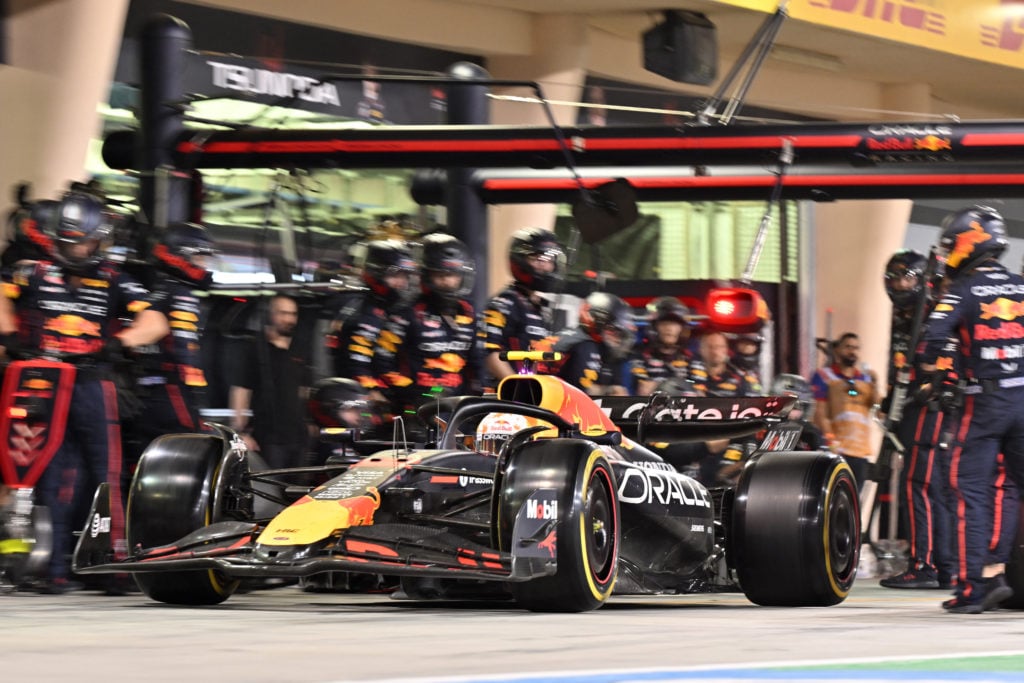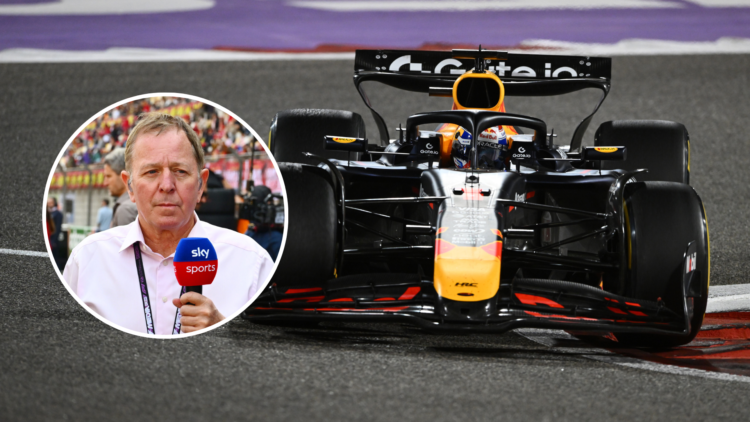Max Verstappen summarised Red Bull’s Bahrain Grand Prix as “everything went wrong that could go wrong” after he was hit with several car problems and pit stop issues.
The well-oiled Red Bull machine looked like it was enduring a series of false starts in Bahrain, as the Dutchman struggled with brake problems, overheating tyres and general balance issues in the RB21.
This was further plighted by problems in the pit stop for Verstappen and Yuki Tsunoda, when they were delayed after the team’s traffic light system failed and delayed them significantly.
Christian Horner said this was down to “electric issues” on the pit gantry when speaking in Red Bull’s press release post race, with the team investigating the root cause. After the race, Red Bull’s senior management held an ‘intensive meeting’ in the F1 paddock after complaints from Verstappen.
Red Bull has dominated rivals in pit stops in recent years, but since the departure of a key figure, McLaren and Ferrari has now overtaken them.

Red Bull overtaken by McLaren pit stop crew since the exit of Jonathan Wheatley
Pit stops are a crucial part of an F1 race as they can be what make or break a team’s fortunes, and usually Red Bull is the benchmark in this area.
They have been the receivers of the F1 pit stop award for the last seven years in a row, but that could all now change following the exit of former sporting director Jonathan Wheatley.
Martin Brundle was quick to pick up on the impact his exit had on the pit crew when commentating on the Bahrain GP on Sky Sports F1.
“You can’t help but imagine Jonathan Wheatley on the Sauber pit wall just glancing back and looking at the pitstop chaos for Red Bull,” said Brundle.
Wheatley left Red Bull at the end of the 2024 season to join Sauber as team principal, ahead of their transition into the Audi works outfit in 2026. His influence has not gone unnoticed in the F1 paddock, with Peter Windsor also detailing how he approaches problems when speaking on his YouTube channel.
“Interesting that Jonathan Wheatley is now at Sauber and you wonder whether there is a bit of an effect here. I’ve always found him to be a classic team manager-type guy, very easy to talk to and very friendly but the minute he is focused on something he’s very, very sharp and very disciplined,” said Windsor.
| Red Bull | McLaren |
| Verstappen (Australia) – 2.56s | Norris (Australia) – 2.79s |
| Verstappen (China) – 2.15s | Norris (China) – 2.27s |
| Tsunoda (Japan) – 2.90s | Piastri (Japan) – 2.19s |
| Tsunoda (Bahrain) – 4.26s | Piastri (Bahrain) – 2.36s |
Red Bull’s fastest stop was 4.26s for Tsunoda in Bahrain, with Verstappen’s quickest only marginally faster after being hit by a slow front right coming off. McLaren was quicker by nearly a full second with Piastri’s quickest stop coming in at 2.36s in Bahrain, while they also outclassed Red Bull in Suzuka with a 2.19s stop.
- READ MORE: Who is Jonathan Wheatley? Everything you need to know about Audi and Sauber’s new F1 team principal
Jonathan Wheatley’s impact immediately seen at Sauber
Pit stop data in F1 is published after each race, with a top 10 leaderboard compiled by main logistics partner DHL.
Red Bull has historically been at the top of the leaderboard over the years, however, they are found at the bottom of the table in 2025.
| Driver | Pit stop time (seconds) |
| Lewis Hamilton | 2.16 |
| Gabriel Bortoleto | 2.24 |
| George Russell | 2.27 |
| Lewis Hamilton | 2.28 |
| Nico Hulkenberg | 2.29 |
Ferrari currently holds the fastest pit-stop record having produced a 2.16s stop for Lewis Hamilton at the Bahrain Grand Prix, which followed on from a 2.18s stop in Japan for the seven-time world champion Charles Leclerc’s fastest stops in Australia and China.
Sauber is currently second overall with a 2.2s stop for Gabriel Bortoleto in Bahrain, with their average stop time now down to at least 2.5 seconds. Although they were hit with issues with their wheel nuts at the start of last season, that is a big difference since the arrival of Wheatley.

